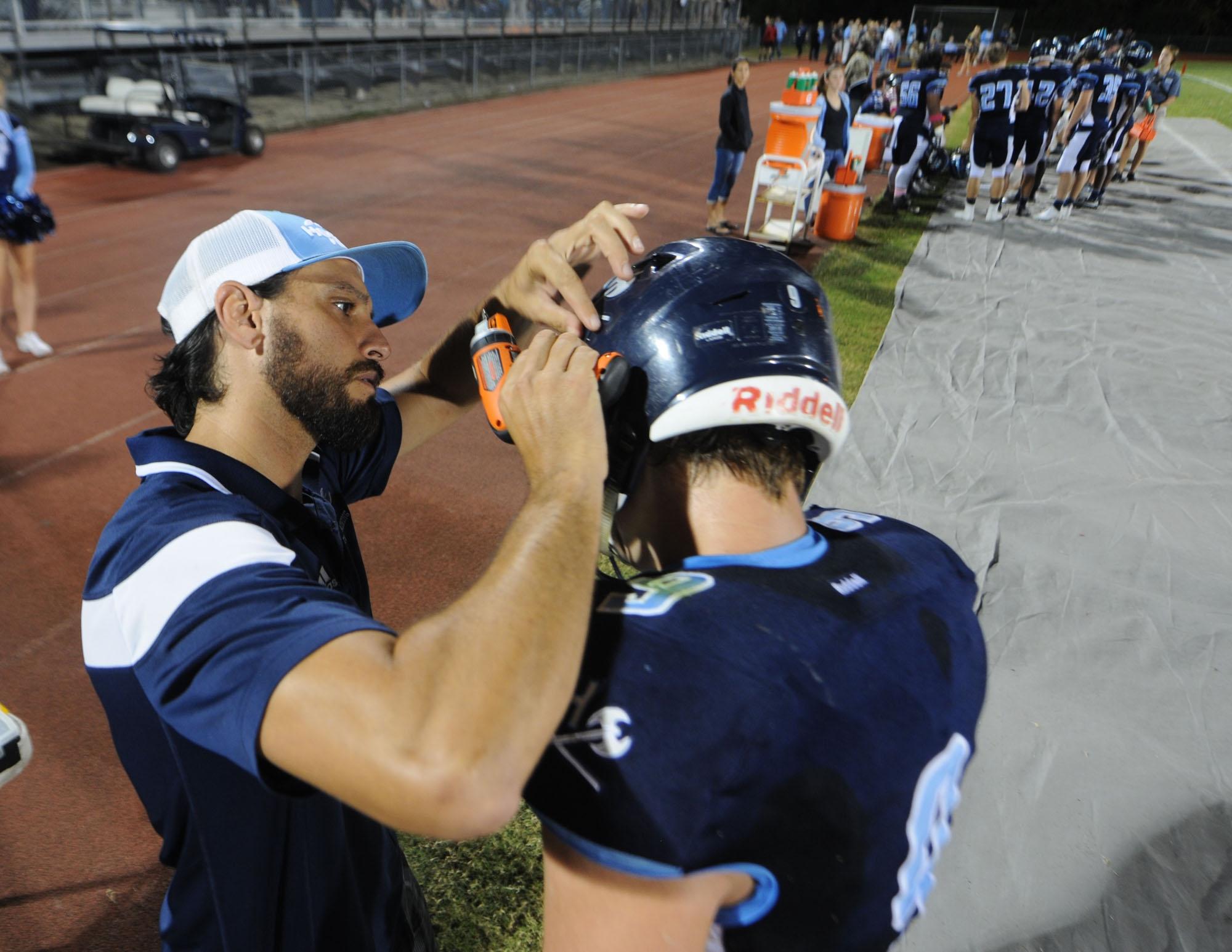
Article reposted from Star News
Author:
Workload, hours comparable to football coaches
During the fall, Megan Hardy usually works between 14 and 16 hours on Thursdays and Fridays.
There are a couple breaks to sneak in lunch and dinner, but for the most part the West Brunswick athletic trainer is busy either teaching classes or preparing for a football game.
“They are long days, especially because I’m at school all day as a teacher,” said Hardy, who is in her 15th year with the Trojans.
While a lot of her work is done behind the scenes and not noticed by fans, it is appreciated by the coaching staff and players.
“To me, one of the most important positions on your staff is your trainer,” West Brunswick athletic director and former football coach Jimmy Fletcher said. “Megan is one of the only other people that is here as much as me, and I wouldn’t do this job without her.”
Testing for injuries
With players becoming stronger and faster, injuries are becoming more prevalent in the sport. Concussions have become a big topic of discussion over the past decade, especially at the youth and high school levels.
Prior to beginning practice, the N.C. High School Athletic Association mandates that every athlete must have a current physical and a concussion form signed by the student-athlete and their parent on file.
Each athletic trainer screens a possible concussion differently, but they are all looking for the same signs and symptoms.
“What I think helps the most for me is falling back on my clinical skills and also staying up to date on the most evidence-based practice,” said Hoggard athletic trainer Alex McDaniel. “There are a few articles that were put out by some clinical studies that were done in the NFL and the NCAA in the last few years that really nail down sideline assessment.”
If McDaniel suspects a player has a concussion, he puts them through an entire clinical evaluation on the sideline. The process usually last about five minutes.
“With motor function and sensory function of the upper body, we can determine their cranial nerves and see how intact they are,” McDaniel said. “Aside from cranial nerves, we do a test that is very similar to a DUI test called Romberg. It’s a set of balance and hand-eye coordination skills. After that, we do a memory cognitive skill test.”
McDaniel also adds a fourth test to assess the state of the player’s cervical spine nervous system.
If a player is diagnosed with a concussion, they must be free of all symptoms before beginning a gradual Return-to-Play progression, which has six stages that must be completed on different calendar days.
Taking caution
Most of the injuries athletic trainers deal with on a day-to-day basis and during games aren’t as severe as concussions.
Hardy treats a lot of cramping during the beginning of the season when the temperatures are still warm and the practices switch from mornings or evenings to right after school.
“It’s hard to simulate game tempo in practice,” Hardy said. “Our kids can get water whenever they want at practice, whereas in a game we can’t just stop in the middle of a long drive and send them over for water because they are thirsty.”
Ankles and knees tend to be the most common lower body injuries, especially during games when players are falling on top of each other during tackles.
The risk of putting an injured player back into the game and causing more extensive damage is something all athletic trainers deal with. It’s why the relations between them, the coaching staff and players is so important.
“The good thing of our coaches is that they really trust what I say,” McDaniel said. “Whenever I see an athlete with an injury, not only do I follow and adhere to our national standards and protocols, but I adhere to what best practice is as far as health care is concern. I do all types of functional return to play tests.”
“My coaches are really good to work with. They don’t want to jeopardize a kid’s safety, because they know there is stuff beyond high school sports,” Hardy added. “It’s important for us to win every Friday, but it’s also important for them to be able to have families and not have a catastrophic injury to worry about.”